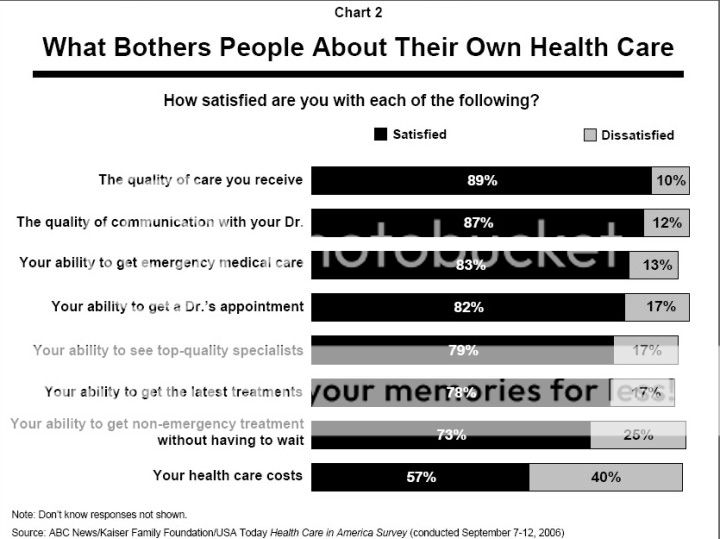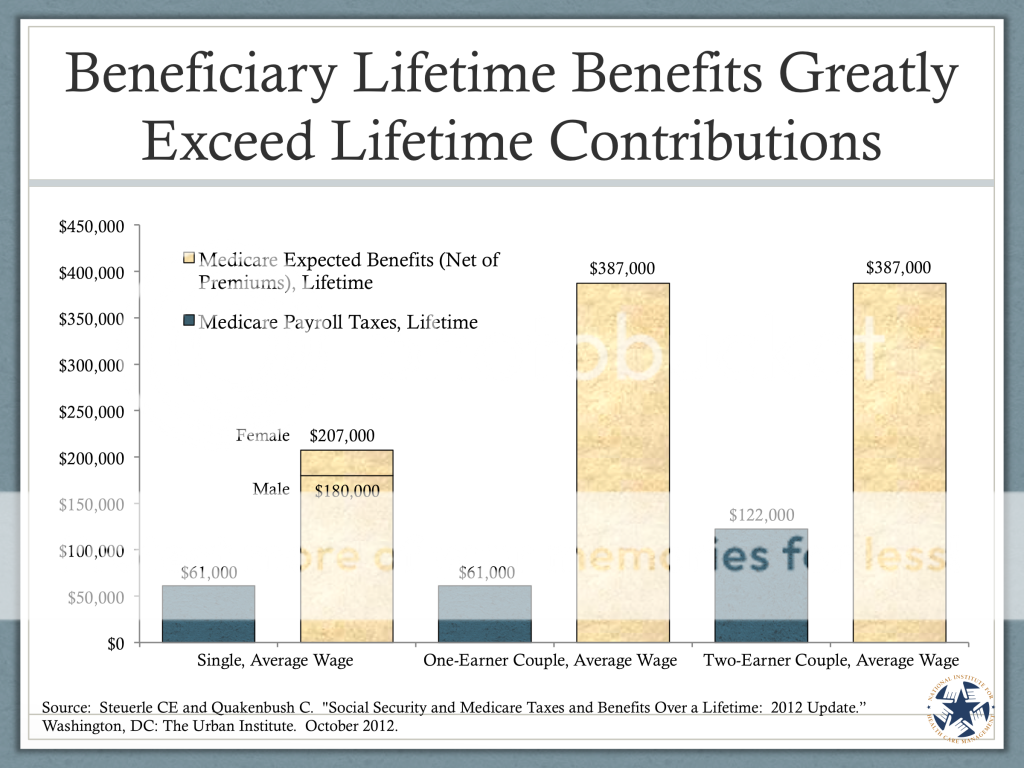- Joined
- Nov 7, 2012
- Messages
- 7,039
- Reaction score
- 3,268
- Location
- Denio Junction
- Gender
- Undisclosed
- Political Leaning
- Other
Um except that the 30 year old already pays into Medicare and gets no service. All that is suggested is an increase in services - even if it is minor. The added tax burden - I don't believe this country wants to pay.
The ratio of expenditures to revenues would be much lower for younger beneficiaries. You can't really compare the cost of providing health coverage to a 75 year old with a history of heart disease to providing coverage to a 30 year old.



